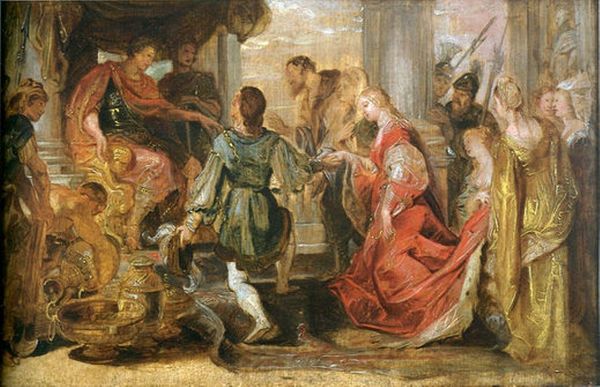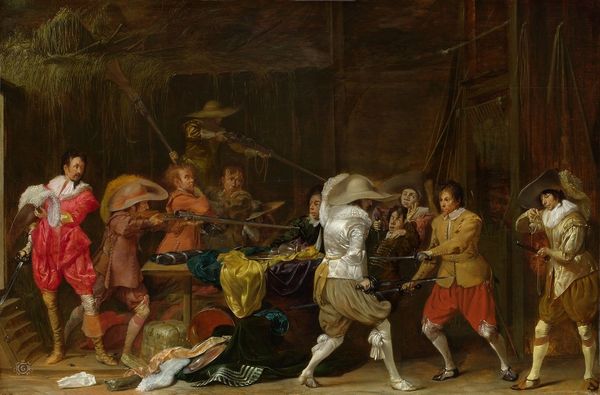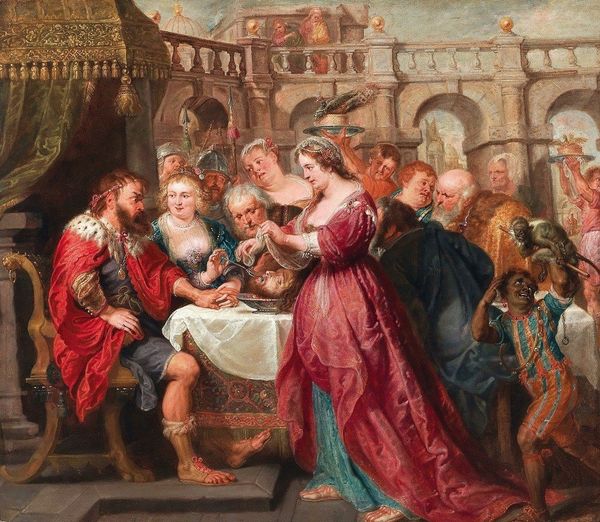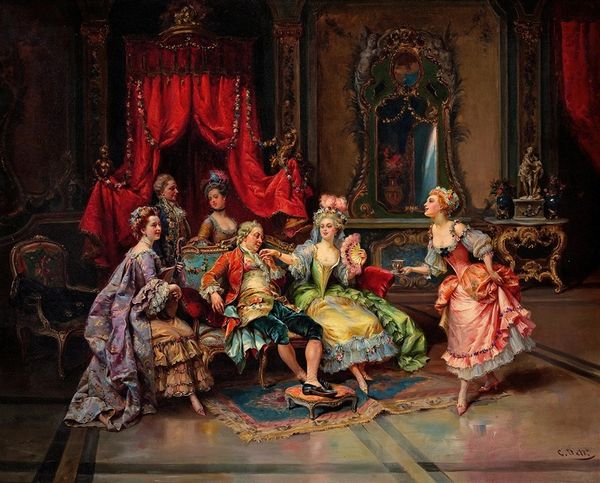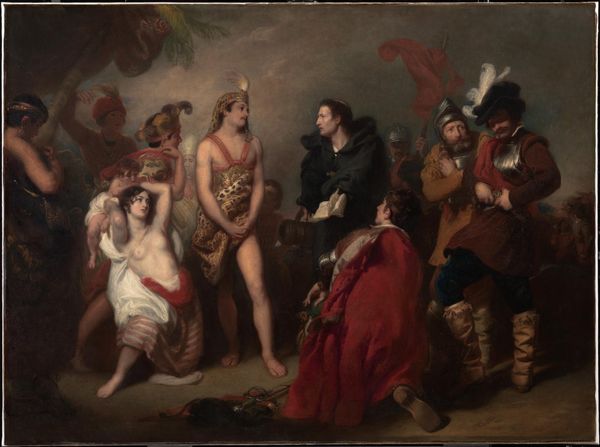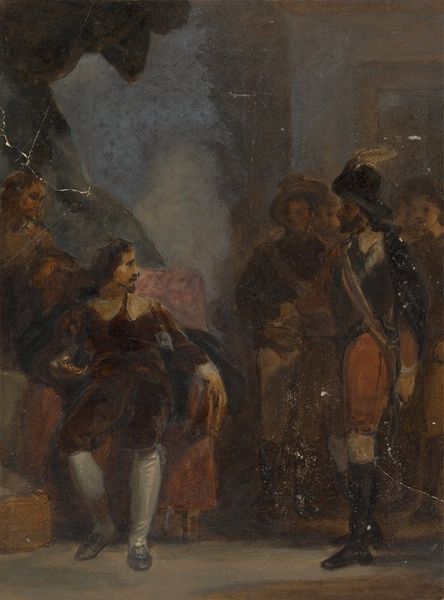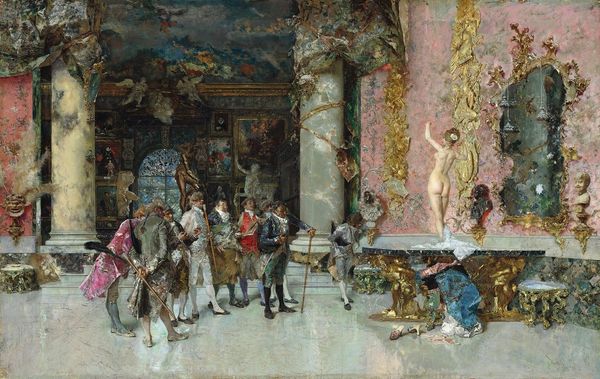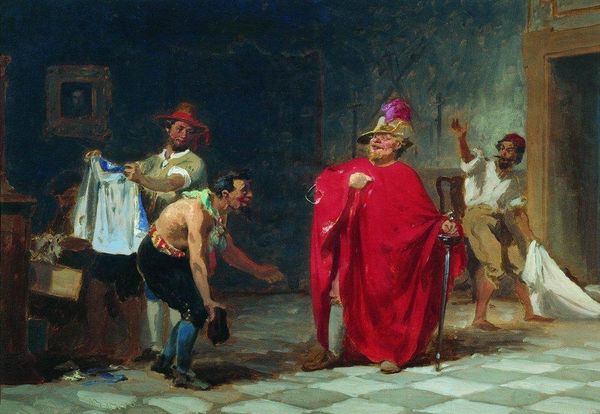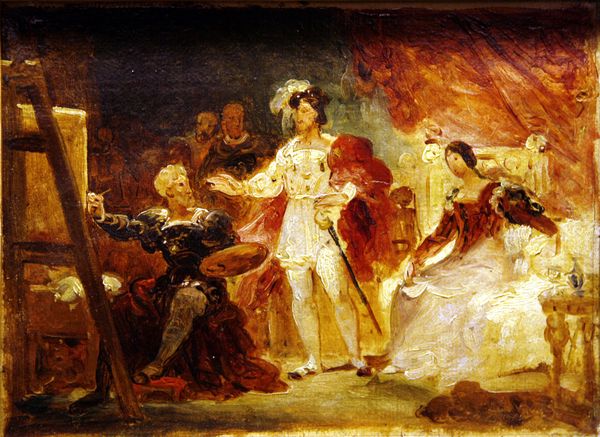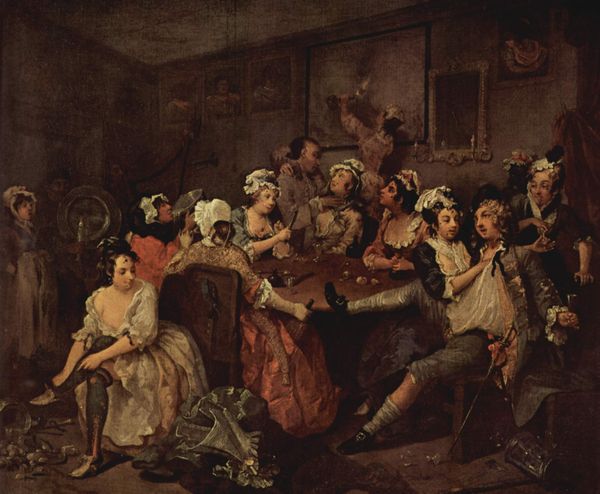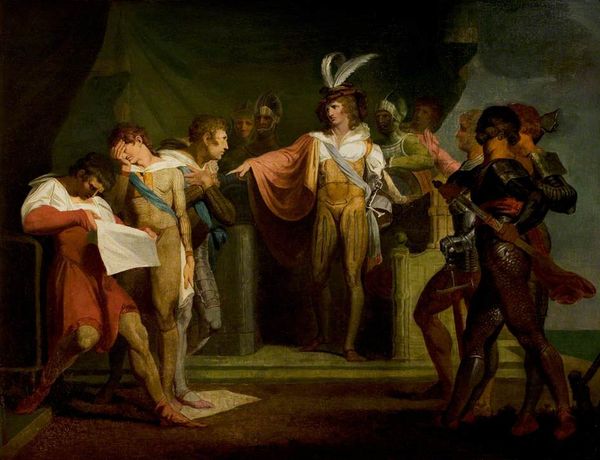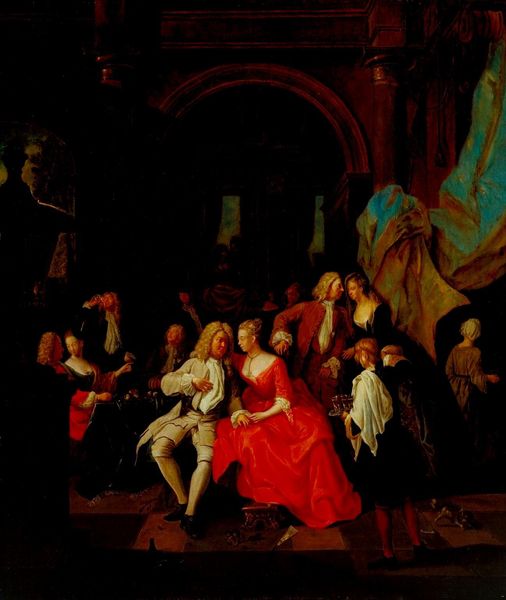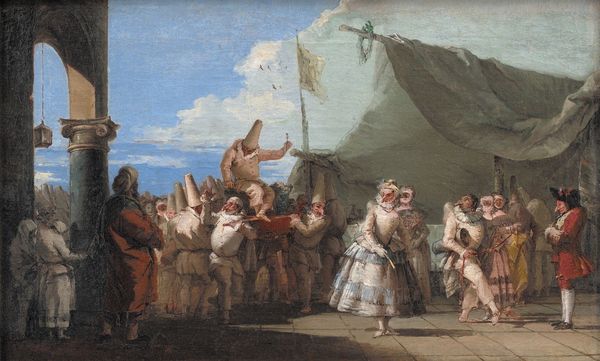
painting, oil-paint
#
portrait
#
figurative
#
painting
#
oil-paint
#
figuration
#
oil painting
#
underpainting
#
romanticism
#
painting painterly
#
history-painting
#
portrait art
#
fine art portrait
Copyright: Public Domain: Artvee
Curator: Here we have Eugène Delacroix's "The Stage Of Archduchess Isabella", an oil painting that presents a historical tableau, seemingly caught in mid-action. What strikes you first about this piece? Editor: Immediately, the brushwork—it's incredibly loose, almost feverish. And the tonality is warm, creating an atmosphere of heightened drama, despite the seemingly small scale of the piece. Curator: It’s believed this is likely a study or preparatory work. Considering the history that Romanticism engages with, could you reflect on how power dynamics may have been translated by Delacroix, and for whom? Editor: Note how Delacroix's handling of light and shadow defines form, creating both volume and dynamism. It’s almost sculptural in places, especially the rendering of the figures in the foreground, but again the loose strokes are also striking in that even with minimal details he portrays the emotions and energy of the composition with incredible efficiency. Curator: Absolutely, and when you factor in Delacroix’s historical context, we start to realize he may be portraying historical or mythical narratives to evoke a spirit of French nationalism after the fall of Napoleon and during a time when France needed heroes. This painting offers a visual metaphor, suggesting possible themes of power and social performance, very relevant to France’s own changing role within Europe at the time. Editor: I can’t help but focus on that tension between classical form and the Romantic painterly style. Look at the brushstrokes on the Archduchess's face! Such gestural marks simultaneously build form and break it down. This tension activates the entire surface of the painting. It pulsates. Curator: These brushstrokes add depth to the narrative and bring life to Isabella and her audience, reminding us that historical depictions always tell stories beyond those initially intended. They mirror the social tensions and aspirations of Delacroix's own era. Editor: Looking at the formal arrangement, I am really caught up in the artist's masterful deployment of underpainting in these light effects; the bare canvas is essential for luminosity in what otherwise would become heavy and opaque due to oil layering. Curator: Delacroix gives us more than a snapshot of a stage; he presents a complex lens through which to view historical pageantry and French society, perhaps even questioning it. Editor: Indeed. This painting rewards deep visual engagement, uncovering the subtle intricacies within its energetic and textured surface, an exemplar of movement that gives it a very modern feel.
Comments
No comments
Be the first to comment and join the conversation on the ultimate creative platform.
